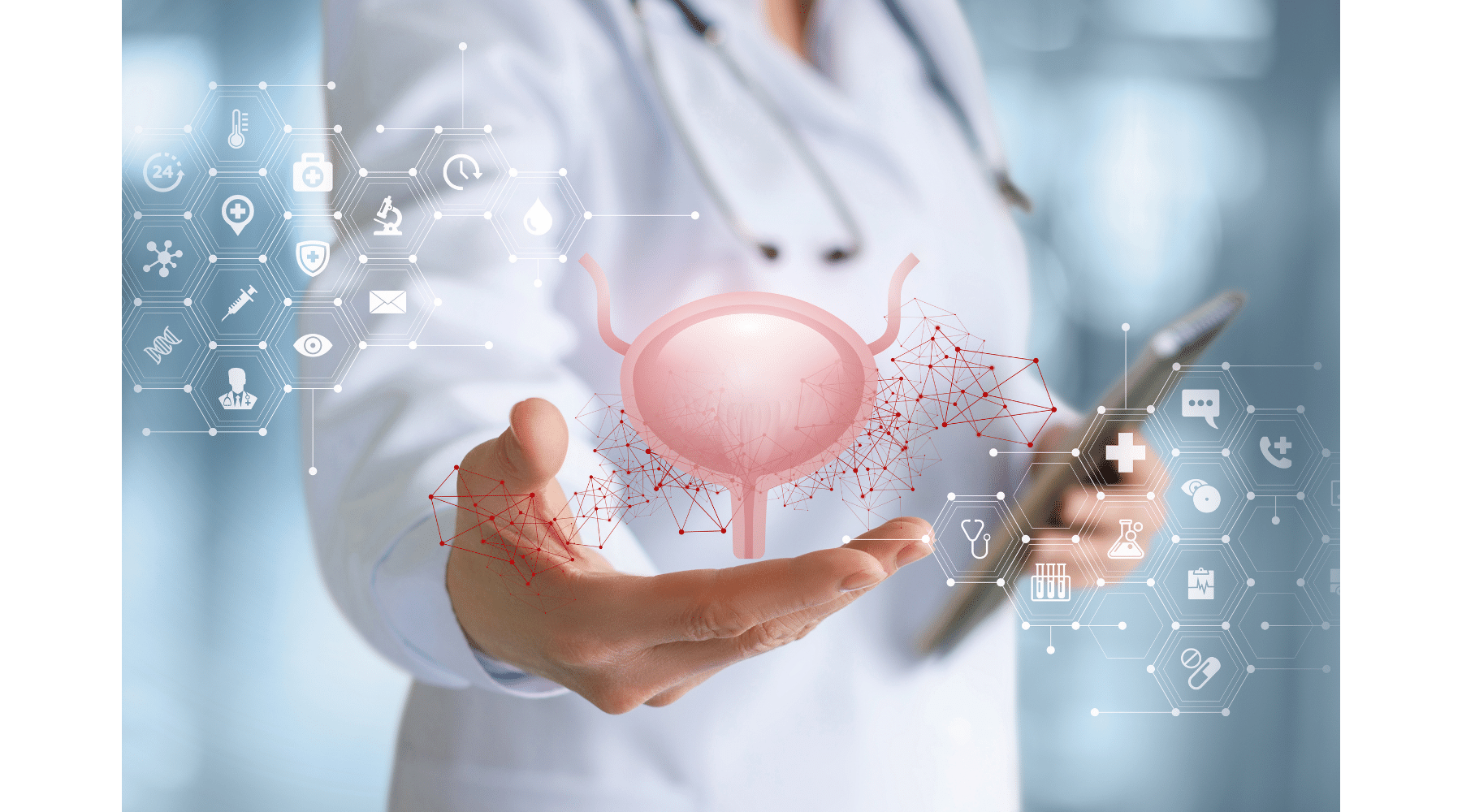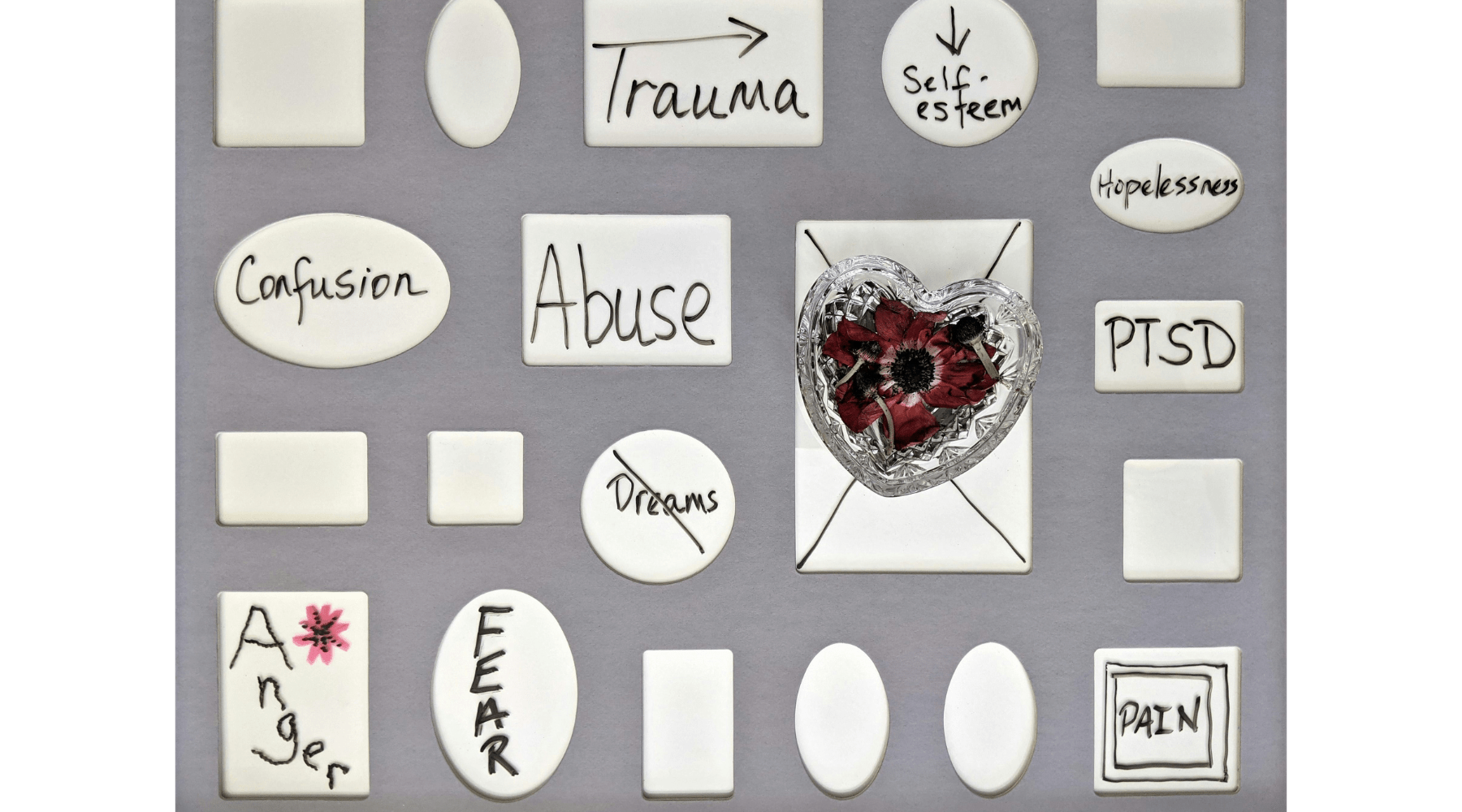
Interstitial Cystitis and Your Period: Unlocking the Secrets to a Calmer, Happier Cycle
Do you dread the arrival of your menstrual period due to the painful flares of interstitial cystitis? You're not alone. Many women struggle with the intersection of these two conditions, experiencing increased urinary symptoms, pelvic pain, and overall discomfort during that time of the month. In this blog, we'll delve into the connection between interstitial cystitis and the menstrual cycle, exploring strategies to manage symptoms, improve health, and find relief. Join us on this journey of understanding and discover how you can reclaim control over your menstrual period and live a calmer, happier cycle.
Understanding Interstitial Cystitis and Menstrual Periods
For many women, the arrival of their menstrual period brings with it a range of physical and emotional changes. However, for those who also suffer from interstitial cystitis (IC), this time of the month can be particularly challenging. Interstitial cystitis is a chronic bladder condition characterized by pain and discomfort in the pelvic region. It can cause frequent urination, urgency, and a feeling of pressure in the bladder. When combined with the hormonal fluctuations that occur during menstruation, these symptoms can become even more pronounced. Research has shown that there is a connection between interstitial cystitis and menstrual cycles. In fact, studies have found that women with IC are more likely to experience flares during their period compared to other times of the month. The exact reasons behind this relationship are still being investigated, but it is believed that hormonal changes may play a role in triggering inflammation in the bladder. Additionally, some women may also have underlying conditions such as endometriosis or pelvic floor dysfunction which further contribute to their symptoms during menstruation. Understanding this connection between interstitial cystitis and menstrual periods is crucial for both patients and healthcare providers alike. By recognizing how these two factors interact, we can better manage symptoms and develop personalized treatment plans that address the specific needs of each individual patient
The Connection Between Interstitial Cystitis and Menstruation
For many women who suffer from interstitial cystitis, also known as IC, their menstrual cycle can bring about increased symptoms and discomfort. Understanding the connection between interstitial cystitis and menstruation is crucial in managing this condition effectively. During a woman's menstrual period, hormonal changes occur that can directly impact the bladder and pelvic region. The lining of the uterus sheds during this time, resulting in inflammation and heightened sensitivity in the surrounding areas. For individuals with interstitial cystitis, this inflammation can trigger flares, leading to increased pain, urgency, frequency, and overall discomfort. Research has shown that there is a strong correlation between interstitial cystitis and endometriosis, a condition where tissue similar to the uterine lining grows outside of the uterus. Both conditions share common symptoms such as pelvic pain and urinary issues. It is essential for patients with interstitial cystitis to be aware of this potential connection so they can seek proper diagnosis and treatment if needed. One study found that nearly 60% of female subjects diagnosed with interstitial cystitis reported experiencing worsening symptoms during their menstrual cycle compared to other times of the month. This further emphasizes the significance of understanding how menstruation affects those living with IC. Awareness of these connections allows patients to take proactive steps in managing their symptoms during their menstrual period. By implementing strategies such as heat therapy or gentle stretching exercises, individuals can alleviate some of the pain associated with interstitial cystitis flares during this time. Additionally, modifying one's diet by avoiding trigger foods like caffeine or spicy foods can help reduce inflammation and minimize discomfort. Incorporating stress-reducing activities into daily routines like meditation or deep breathing exercises may also contribute to a calmer experience during menstruation. Finding support through online communities or support groups specifically tailored for those dealing with both IC and their monthly cycle can provide much-needed comfort and advice from others going through similar experiences. By making small lifestyle adjustments, such as wearing loose-fitting clothing or practicing good hygiene habits, individuals can minimize potential triggers and promote a peaceful, balanced approach to managing interstitial cystitis during their period. In conclusion, recognizing the connection between interstitial cystitis and menstruation is vital for women dealing with this condition. By understanding how hormonal changes impact symptoms and implementing gentle strategies for pain management, individuals can achieve a calmer and happier cycle while living with IC.
Symptoms of Interstitial Cystitis During the Menstrual Cycle
During your menstrual cycle, if you have interstitial cystitis, you may experience a variety of symptoms that can significantly impact your daily life. The combination of hormonal changes and the inflammation in the bladder caused by interstitial cystitis can lead to increased pain, urgency, and frequency of urination during this time. Many patients report that their symptoms worsen right before or during their period. This can be attributed to the heightened sensitivity of the pelvic region during menstruation, as well as the release of prostaglandins which contribute to inflammation and pain. Additionally, some individuals with interstitial cystitis may also have co-existing conditions like endometriosis, further exacerbating their symptoms during their menstrual cycle. It is important to listen to your body and pay attention to any changes or fluctuations in symptoms throughout your menstrual period so that you can effectively manage them and find relief.
Managing Pain and Discomfort: Gentle Solutions for a Happier Period with Interstitial Cystitis
Managing pain and discomfort during your menstrual period with interstitial cystitis can be challenging, but there are gentle solutions that can help you have a happier cycle. One of the key strategies is to prioritize self-care and relaxation techniques. Taking time for yourself and engaging in activities that promote calmness can significantly reduce the intensity of your symptoms. Gentle exercises such as yoga or tai chi can help relieve pelvic tension and improve bladder control. Additionally, practicing deep breathing exercises or meditation can provide relief from pain and promote overall well-being. Another important aspect is managing your diet during this time. Avoiding trigger foods such as caffeine, spicy foods, and artificial sweeteners can minimize flares and alleviate discomfort. Instead, opt for a nutritious diet rich in fruits, vegetables, lean proteins, and whole grains to support your overall health and reduce inflammation in the body. It's also essential to stay hydrated by drinking plenty of water throughout the day to flush out toxins from your system. Lastly, finding support from others who are living with interstitial cystitis and dealing with their monthly cycles can be incredibly helpful. Joining online support groups or seeking out local support networks allows you to connect with individuals who understand what you're going through and can offer guidance and empathy when needed. By implementing these gentle solutions into your routine, you can embrace a peaceful approach to managing interstitial cystitis during your menstrual period while minimizing pain and discomfort
Nutrition Tips for Easing Symptoms during Your Period with Interstitial Cystitis
When it comes to managing interstitial cystitis (IC) during your menstrual period, paying attention to your nutrition can make a significant difference in easing symptoms and promoting a calmer cycle. Certain foods can trigger bladder irritation and inflammation, exacerbating the discomfort experienced by IC patients. To minimize these flare-ups, it's important to focus on a diet that supports bladder health and reduces inflammation. Incorporating foods rich in antioxidants, such as berries, leafy greens, and turmeric, can help reduce oxidative stress and promote healing within the urinary tract. Additionally, avoiding common irritants like caffeine, alcohol, spicy foods, and artificial sweeteners can help alleviate symptoms during your period. Hydration is also crucial for maintaining optimal bladder function; aim to drink enough water throughout the day and consider incorporating soothing IC/BPS dietary supplements like CYSTASOLV into your routine. By making thoughtful choices in regards to your nutrition during this time of the month, you can support your overall health while minimizing discomfort associated with IC flares
Self-Care Practices to Promote Relaxation and Calmness during Your Cycle with IC
During your menstrual cycle with interstitial cystitis (IC), self-care practices play a crucial role in promoting relaxation and calmness. Taking care of yourself physically, mentally, and emotionally can help alleviate symptoms and improve your overall well-being. One effective self-care practice is practicing deep breathing exercises. By consciously focusing on your breath, you can reduce stress levels and ease tension in the pelvic region. Another helpful technique is incorporating mindfulness into your daily routine. Engaging in activities like meditation or yoga can bring a sense of tranquility and help manage pain during your period with IC. Additionally, gentle exercises such as walking or swimming can promote blood circulation and release endorphins, which are natural pain relievers. Remember to listen to your body's needs and rest when necessary. Creating a peaceful environment at home by dimming lights, using aromatherapy or playing calming music can also contribute to a more relaxed state during this time. Self-care practices are highly individualized, so it's important to explore different techniques to find what works best for you in managing IC during your menstrual cycle.
Finding Support: Connecting with Others Living with IC and Dealing With Their Monthly Cycle
Connecting with others who are living with interstitial cystitis (IC) and navigating their monthly cycle can be a valuable source of support. Dealing with the symptoms of IC during your menstrual period can be challenging, but knowing that you're not alone can provide comfort and encouragement. By joining support groups or online communities specifically for IC patients, you can connect with individuals who understand firsthand what you're going through. Sharing experiences, tips, and strategies for managing IC during your period can help alleviate feelings of isolation and empower you to take control of your health. These communities often provide a safe space where you can ask questions, seek advice, or simply vent about the challenges associated with IC and menstruation. In addition to emotional support, connecting with others living with IC can also offer practical insights. Hearing about different coping mechanisms or treatment options from fellow patients may inspire new ideas that could improve your own management of IC symptoms during your menstrual cycle. Furthermore, these connections may lead to friendships built on shared experiences and understanding. Having someone to lean on during difficult times can make all the difference in managing the physical discomfort and emotional toll that IC flares may bring during your period. Whether it's finding solace in shared stories or gaining knowledge from other patients' journeys, seeking support from those who truly comprehend the complexities of living with IC and dealing with its impact on menstrual cycles is invaluable. Remember, you don't have to face this alone – reach out and connect with others who are navigating similar challenges. Together, we can find strength in unity as we embrace a peaceful and balanced approach to managing interstitial cystitis during our periods.
Lifestyle Adjustments to Minimize Flares During Your Menstrual Period
During your menstrual period, making certain lifestyle adjustments can help minimize flares of interstitial cystitis (IC) and promote a more peaceful experience. One key adjustment is to pay attention to your bladder health by staying hydrated throughout the day. Drinking plenty of water can help flush out toxins and prevent urine from becoming too concentrated, which may irritate the bladder. Additionally, avoiding caffeine and alcohol during your period can further reduce inflammation and irritation in the pelvic area. Engaging in gentle exercises such as yoga or walking can also provide relief by promoting blood flow to the pelvic region and reducing muscle tension. Taking warm baths or using heating pads on your lower abdomen can alleviate pain and cramps associated with both IC and menstruation. Lastly, practicing stress-reducing techniques like deep breathing or meditation can help calm the nervous system, easing symptoms of IC during your period. By incorporating these lifestyle adjustments into your routine, you can create a calmer environment for your body and ensure a happier cycle while living with interstitial cystitis.
Conclusion: Embracing a Peaceful, Balanced Approach to Managing IC During Your Period
Managing interstitial cystitis (IC) during your menstrual period can be a challenging experience, but it doesn't have to be overwhelming. By embracing a peaceful and balanced approach, you can find ways to alleviate symptoms and enjoy a happier cycle. Throughout this blog article, we explored the connection between IC and menstruation, the symptoms experienced during the menstrual cycle, gentle solutions for managing pain and discomfort, nutrition tips to ease symptoms, self-care practices promoting relaxation, finding support from others dealing with IC and their monthly cycles, lifestyle adjustments to minimize flares during periods, and understanding the importance of a peaceful and balanced approach. With a focus on your bladder health and overall well-being, you can navigate through your menstrual period with greater ease and comfort. Remember that each patient's experience with IC is unique; therefore, finding what works best for you may take time. Be patient with yourself as you explore different strategies and treatments that suit your needs. By prioritizing self-care techniques such as relaxation exercises or connecting with support groups for guidance and encouragement along the way, you can enhance your journey towards managing IC during your period in a calm and gentle manner.
References


